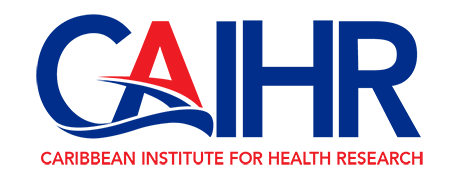The Tropical Medicine Research Institute is now CAIHR

The University Finance and General Purposes Committee has approved the renaming of The Tropical Medicine Research Institute as the Caribbean Institute for Health Research (CAIHR). This change is effective August 1, 2016. The rebranding has been done to better represent the multi-disciplinary scope of the work conducted by the Institute and to reflect our vision: Transforming lives globally through innovative research and effective health interventions.
The Institute addresses issues that affect the health and development of Caribbean people to provide the knowledge needed to promote well-being through prevention and improvements in management and quality care. CAIHR’s mission is "To enhance the health and well-being of Caribbean and global populations through innovative research, training and strategic partnerships, providing timely knowledge dissemination and translation for sustainable development". Our focus is on understanding the factors that influence health across the life course and on development and evaluation of feasible cost-effective interventions and programmes to improve early child development and growth, and to reduce the burden and impact of chronic diseases. CAIHR will have increased emphasis on translation of research findings to support the use research evidence to inform policy decisions and programmes within the Caribbean and internationally. Our training programs to build health research capacity will continue.
CAIHR comprises the Chronic Disease Research Centre, the Epidemiology Research Unit, the Sickle Cell Unit and the Tropical Metabolism Research Unit. Examples of recent and on-going work include:
- The Jamaica Health and lifestyle surveys and the Barbados Health of the Nation survey which inform policy related to NCDs
- Evaluation of the CARICOM Port of Spain Declaration on non-communicable diseases (NCDs)
- USA-Caribbean Alliance for Health Disparities Research
- Integration of Places of Worship in primary care prevention and control of NCDs (implementation in Dominica, Guyana, Jamaica)
- The impact of early life nutrition and growth on later health outcomes
- The influence of foetal growth and birth size on later stress response and cardio-metabolic risk factors
- Understanding sickle cell disease across the life course, to improve management and care of affected persons
- Implementation of new born screening for sickle cell disease and training in early life care
- Parenting interventions in the Caribbean (Antigua, Jamaica, St Lucia)
- Impact of early childhood intervention on adult educational attainment, reduced violence and increased income
- Reach Up - Expanding access to early childhood interventions (implementation in Brazil, Guatemala and Zimbabwe)
- Irie Classrooms - Improving social skills and violence prevention in preschool and grade 1
Feedback and interaction with our stakeholders, the support of several funding agencies and development organisations and research partnerships are vital for our success. We look forward to continued and strengthened collaboration and engagement. Please contact us at CAIHR@uwimona.edu.jm for additional information.
